Fracking for Natural Gas production
The technique of hydraulic fracturing is used to increase or restore the rate at which fluids, such as oil, gas or water, can be produced from a reservoir, including unconventional reservoirs such as shale rock or coal beds.
Environmental concerns regarding hydraulic fracturing techniques include potential for contamination of aquifers with fracturing chemicals or waste fluids. On the other hand, hydraulic fracturing is applied to remediation of environmental waste spills.
Fracturing requires drillers to pump large amounts of water mixed with sand and chemicals into the shale formation under high pressure to depths 8,000 feet or greater or even wells less than 1,000 feet, according to the U.S. Environmental Protection Agency.
This process fractures the shale around the well, which allows the natural gas to flow freely, according to the Pennsylvania Department of Environmental Protection. In 1992, the first horizontal well was used in the Barnett Shale around Fort Worth, TX where there was large-scale hydraulic fracturing.
Before that, this extraction process was not profitable. This resulted in drillers having to bypass shale formations and drill only where pockets of natural gas were more easily accessed. It is interesting to note that "CSI" (Las Vegas) actually beat "60 Minutes" to air with a story about fracking.
The CSI show - titled "Fracked" aired November 12, 2010 and the 60 Minutes show aired November 14, 2010. The 60 Minutes show pointed out how Dick Cheney, yes the one in the same past Vice President of the United States, president of Haliburton, heavily pressed the US Congress to pass a law to exempt the oil and gas industry from EPA oversight and address - which indeed passed into law in 2005.
The problem is - while "fracking" is now allowing greatly increased Natural Gas exploration and production, one cannot truly control the fracturing of the substrate geological formations and thus "fracking" can, and does include the contamination of ground water, risks to air quality, the migration of gases and hydraulic fracturing chemicals to the surface, and the potential mishandling of waste.
The potential costs associated with possible environmental clean-up processes, loss of land value and human and animal health concerns are undetermined. New technological advances and appropriate state regulations are working to study and safely implement the process.
There are areas off the Eastern Seaboard where methane - a.k.a. "Natural Gas" bubbles from the sea bed, and it is nick-named the Bermuda Triangle, where engines mysteriously die out and people get disoriented from the hypoxia on boats and plane engines just quit and they often go down. It is area where an entire training flight of Navy TBM Avenger Bomber squadron disappeared in 1945. The squadron has now since been found - in the area where hydrates of gas are naturally occurring and released into the atmosphere from the bottom of the sea floor. It is theorized the Natural Gas killed their engines and they all went down together - just as they were largely found.
Persons have proved that such a large amount of Natural Gas the atmosphere will choke out an engine, and you cannot start it again. Do we really want to be fracking and release Natural Gas in the atmosphere - where we cannot know where it escapes and smell or taste it being released?
The CSI show showed a theoretical outcome that is more reality than you want to know, because in this case 60 Minutes backed it up with the true life stories of the CSI show. Water - a.k.a. H2O and minerals can bond with Natural Gas - CH4 - to make a semi flammable liquid as a funny-funky form of something "like" alcohol. It causes health problems in the form of odd diseases and eventual death. Most people do not know that Natural GAS - a.k.a. - Methane is "naturally occurring" orderless and tasteless.
That is why Methane is so dangerous in the mining industry - where miners cannot know it is present until severe hypoxia has set in and can cause one to pass out and die. Once ground water is contaminated - it cannot be cleaned or "fixed" but by electrolysis and separation of the excess Hydrogen and Carbon molecules, and then burning Hydrogen to re-produce water again and condense it back to distilled water to be able to use it. Wow.
Well . . . if we are going to poison the water supply to get at fuel to sell, it seems to make more sense to just make fuel from the water in the first place in the form of a non-polluting fuel - Hydrogen and re-use it time and again. Why are we not doing this? Well . . . of course it is money.
The almighty "Buck" as we love to say. Not that we do not have enough - but that companies cannot bottle and sell Hydrogen profitably and we cannot afford to design and build a distribution system for it like currently exists for Natural Gas and liquid fuels like Diesel and Gasoline. Worse - Hydrogen can so easily be made by the consumer - the distribution system would eventually fall apart, yielding to self fueling products and systems being manufactured that make the fuel and use it directly.
The problem is - people are not generally Scientific enough to understand how to design their own systems to safely make and use pure Hydrogen, so our system of government at the current time does not want to try this kind of Hydrogen economy at all. Too many hammer mechanics will cause serious mishaps. It is not illegal for you to make and use Hydrogen as a fuel on your own, but it is illegal to tamper with or modify existing fueling systems that are regulated by law. That would be almost every single fueling system made.
Fracking dangers are by no means a theoretical problem . . . a family in Dimock, Pennsylvania found out the hard way. They signed an oil and gas lease to use their land for a one time payment of $2,500 and a percentage of the mineral rights to use the land for gas exploration and production by fracking. They signed the lease, for a onetime payout of $2,500 per acre—better than the $250 per acre a neighbor across the street received—plus royalties on each producing well. Drilling operations near their property commenced in August 2008.
Trees were cleared and the ground leveled to make room for a four-acre drilling site less than 1,000 feet away from their land. The Sautners could feel the earth beneath their home shake whenever the well was fracked. . . . and we wonder why there seems to be such an increase in Earthquake activity . . . anyway . . . Within a month, their water had turned brown. It was so corrosive that it scarred dishes in their dishwasher and stained their laundry.
They complained to Cabot, which eventually installed a water-filtration system in the basement of their home. It seemed to solve the problem, but when the Pennsylvania Department of Environmental Protection (DEP) came to do further tests, it found that the Sautners’ water still contained high levels of methane. More ad hoc pumps and filtration systems were installed.
While the Sautners did not drink the water at this point, they continued to use it for other purposes for a full year. “It was so bad sometimes that my daughter would be in the shower in the morning, and she’d have to get out of the shower and lay on the floor” because of the dizzying effect the chemicals in the water had on her, recalls Craig Sautner, who has worked as a cable splicer for Frontier Communications his whole life. She didn’t speak up about it for a while, because she wondered whether she was imagining the problem. But she wasn’t the only one in the family suffering. “My son had sores up and down his legs from the water,” Craig says. Craig and Julie also experienced frequent headaches and dizziness.
By October 2009, the D.E.P. had taken all the water wells in the Sautners’ neighborhood offline. It acknowledged that a major contamination of the aquifer had occurred. In addition to methane, dangerously high levels of iron and aluminum were found in the Sautners’ water. This resulted in worthless land no one will now buy, including the health issues no one can say right now the long term effects will be.
Mankind's insatiable appetite for energy consumption has led to this - but the real problem is that the energy concern companies insist on making money selling something to you you have had all the time the power to easily make - your own energy. The law is so heavily on the side of energy companies because of the so-called "Haliburton loophole" because of what Disk Cheney managed to accomplish in the Congress.
"Fracking" has been the subject of intense debate in several states, including Pennsylvania, New York and Wyoming. It's supported by businesses and landowners who tout its benefit to a struggling economy, and opposed by those who charge the process -- where millions of gallons of water, sand, and potentially toxic chemicals are injected into the earth -- contaminates wells and threatens public health.
The EPA is currently collecting information for a lengthy study designed to examine the impact of the fracking process on water quality. In September the agency sent voluntary information requests to nine companies that provide fracking services. Haliburton refused to comply and disclose the sought information.
The information the EPA requested included the chemical composition of fluids used in the fracking process, data on the impact of the chemicals on human health and the environment, and locations of sites where fracking has been conducted. According to the EPA, eight of the companies----BJ Services, Complete Production Services, Key Energy Services, Patterson-UTI, RPC Inc., Schlumberger, Superior Well Services, and Weatherford---complied with the information request or made "unconditional commitments to provide all the information on an expeditious schedule".
Only Halliburton failed to provide the EPA with the information it requested. As part of the agency's effort to move forward as quickly as possible, so on November 9, 2010 the EPA issued a subpoena to Haliburton requiring submission of the requested information that has yet to be provided. It has even gone so far that Congress is now trying to undo what it was duped into doing - writing a law to exclude the disclosure of the chemicals used in fracking.
Democratic members of Congress June 9, 2009 introduced twin bills to amend the Safe Drinking Water Act and give the Environmental Protection Agency authority over the controversial drilling process called hydraulic fracturing The stand-alone bills in both the House and the Senate for the Fracturing Responsibility and Awareness of Chemicals Act -- dubbed the FRAC Act -- would also require the energy industry to disclose the chemicals it mixes with the water and sand it pumps underground in the fracturing process, information that has largely been protected as trade secrets.
The House bill was introduced by Diana DeGette, D-Colo., Maurice Hinchey, D-N.Y., and Jared Polis, D-Colo., and will now be debated inside the House Energy and Commerce Committee. According to DeGette, the bill may proceed alone, or she could attach it to a larger piece of legislation. "Frankly we are leaving all the options on the table for moving this bill forward," DeGette said after hearings on the issue last week. A matching Senate version was offered by Sen. Bob Casey, D-Pa., and Sen. Chuck Schumer, D-N.Y. Hydraulic fracturing has attracted scrutiny in the past year after a series of reports by found water contamination in areas across the country where drilling takes place.
Because the fracturing process was exempted from federal water laws by the 2005 Energy Policy Act, which Dick Cheney pushed through - scientists at the Environmental Protection Agency have said they can't adequately investigate cases of pollution or determine whether fracturing might be to blame. We will stop there and let you think about that. Hydrogen has none of these side-effects and issues - but then the energy industry cannot make money selling it - or selling it safely under pressure.
Hydrogen can only and always be used safely by the consumer when made on the fly by them and used at low pressures in direct use fuel injection systems and home fuel apparatii like stoves, furnaces and hot water heaters - just like it used in millions of schools and labs around the world in Chemistry type labs as fuel for Bunsen burners where it is almost always made on site by a hydrogen generator from the water supply of the building . . . so go figure.
So as said . . . we will stop there and let you think about that.
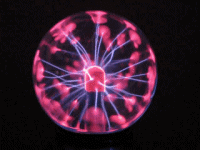

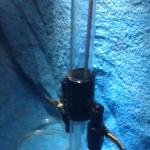 ,
, 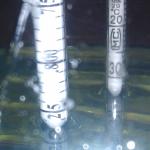 ,
, 
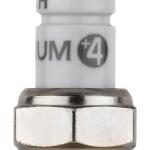



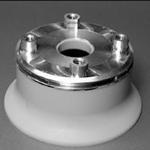
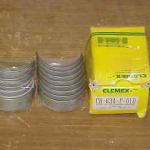




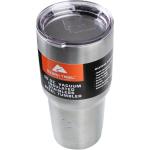
 ,
, 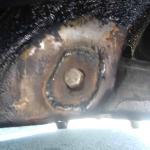 ,
, 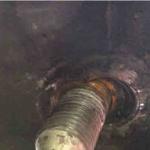 ,
,  ,
, 

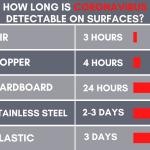 ,
,  ,
,  ,
, 









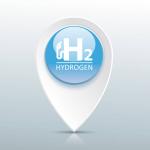
 ,
,  ,
,  ,
, 

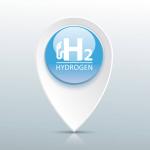
 ,
, 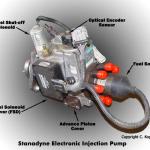 ,
, 
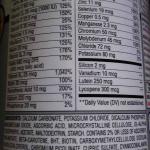 ,
,  ,
,  ,
,  ,
,  ,
, 

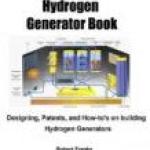


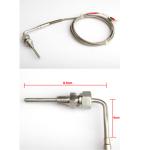
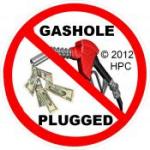
 ,
, 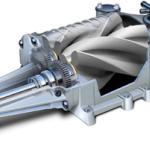 ,
,  ,
,  ,
,  ,
, 

 ,
, 

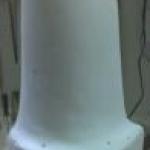
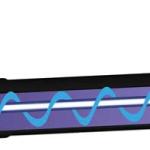
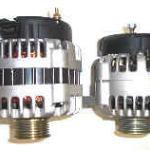 ,
, 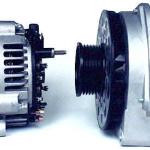 ,
,  ,
, 

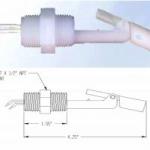

 ,
,  ,
,  ,
, 
 ,
,  ,
, 
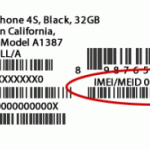

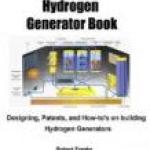




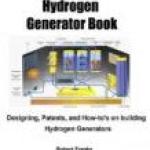
 ,
, 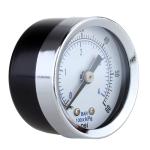
 ,
,  ,
, 
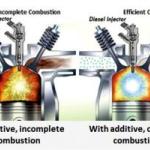

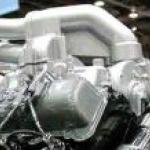

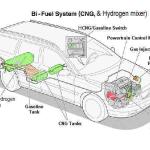
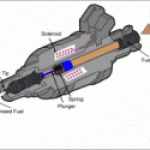
 ,
, 


 ,
,  ,
,  ,
,  ,
, 

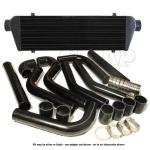 ,
, 
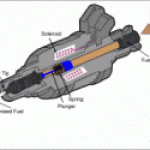

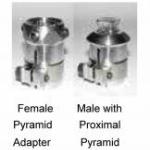
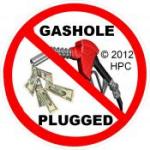
 ,
, 

